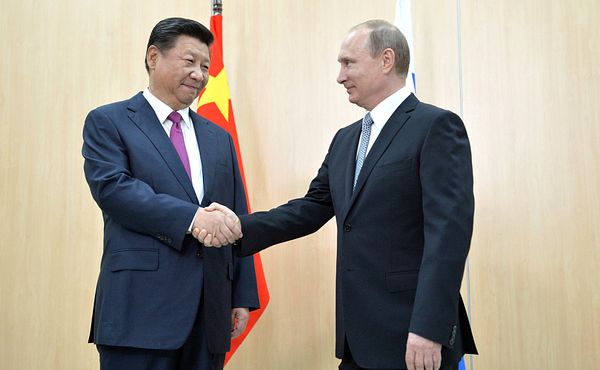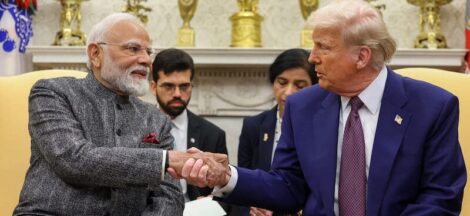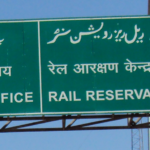Bangladesh’s Chief Adviser to the interim government Dr. Muhammad Yunus is presently in the midst of his diplomatic triumph by successfully outreaching to the major countries of the world including the two super powers. After having a major success in getting all the support from the Chinese President Xi Jinping during his visit to Beijing in the last week of March this year, Dr. Yunus on April 17 Thursday received two important delegations-one from Pakistan and the other from the US Government. A third military delegation from Russian Navy is now in Chittagong on a four day visit. There was never such flurry of diplomatic activities in Dhaka in the recent past.
The most significant is the visit of the U.S. delegation led by Nicole Chulick, deputy secretary of state in South Asia affairs in the state department. This was the first high powered delegation from the Trump.2 regime after the President took over on January 20 this year. Earlier Trump gave the impression in February this year that he would go by his friend Narendra Modi’s views on Bangladesh, but the situation changed following Intel chief Tulsi Gabbard’s report and the China-Bangladesh bonhomie since Dr. Yunus’s visit to Beijing last month.
The U.S. South Asia department is making its own assessment about its future policy on Bangladesh taking into account its own political and economic interests giving not much importance to Trump’s dear friend Narendra Modi’s views. The U.S. is equally interested in having a new government in Bangladesh after elections friendly to it just as China is also trying. The U.S. knows that China is far ahead in the political game in Dhaka with its supporters among all the main political parties.
Apart from talks with Dr. Yunus, the delegation held talks with all the major parties, the BNP, the Jammat and the newly set up party of the students body National Citizen Party(NCP). BNP demanded elections before December this year, while Jammat wanted elections early next year. Only NCP said that the elections should be held after their proposed reforms measures including changes in electoral laws and constitution are implemented. So far, there is no official statement that the U.S. delegation will be meeting any group of Awami League. But the U.S. embassy officials in Dhaka are in touch with some Awami League leaders. It will not be surprising that a visit is organized with AL leaders before the U.S. team leaves Dhaka.
As regards Pakistan, the visit of the Pakistan foreign secretary Amina Baloch to attend the Foreign Office Consultation (FOC) is just the continuation at faster pace of the establishment of bilateral relationship which began soon after the Hasina Government fell on August 5 last year and Dr. Yunus took over as interim head on August 8. The FOC is the diplomatic engagement after 15 years. This means that during the last 15 year rule of Hasina, there was no such meeting with Pakistan.
At the FOC at the State Guest House Padma, Foreign Secretary Md Jashim Uddin led the Bangladesh side, while Amina Baloch headed the Pakistan delegation. All bilateral issues were discussed and both sides decided to take the relations to a higher level. Pakistan’s Deputy Prime Minister Ishaq Dar who is also foreign minister is scheduled to visit Dhaka on April 27-28 to have discussions with Dr. Yunus. In the last eight months, Dr. Yunus had bilateral talks with the Pakistan Prime Minister Shehbaz Sharif twice-first at UN general assembly in New York in September last year and then in December at Cairo in the D-8 meeting.
For Bangladesh, the current visit of the Russian Navy delegation to Chattogram port is equally diplomatically significant. Russia has not been any important player in the political scene in Bangladesh where the battle is mainly between China and the U.S with India, the erstwhile big brother observing the battle from behind putting small hopes on the US moves. Dr. Yunus has given the Russians major importance by inviting them. The Russian ships are on a four day goodwill visit. Big reception was given to them on their arrival.
This visit of Russian Navy delegation including the visit of the three Russian warships was preceded by the visit of Bangladesh’s chief of army staff general Waker Uz Zaman to Moscow and his talks with the top military officials of the Russian defence ministry. Presently, Bangladesh imports more than 80 per cent of the defence equipment from China. This defence supply continued from Hasina government days since the Chinese offered then cheap prices for the products. Russia is interested in supplying to Bangladesh at favourable prices. Bangladesh wants to diversify its military supplies to give some small share to both Pakistan and Russia.
This wooing of Russia has another angle also. Presently India which was earlier depending on imports of weapons from Russia in a big way, has shifted its buying basket more to the USA. The Russians are upset, though diplomatically, they have been showing friendly gestures to India. BY starting buying of defence equipment from Russia, Dhaka hopes to influence Moscow in its favour in respect of the current issues with New Delhi. (IPA Service)




 Supreme Court Affirms Urdu Signage as Integral to Hindustani Heritage
Supreme Court Affirms Urdu Signage as Integral to Hindustani Heritage 